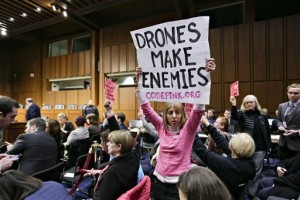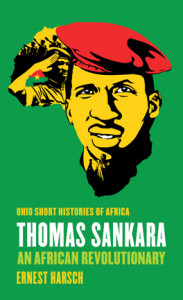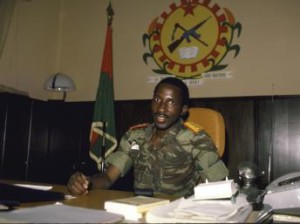Podcast: Play in new window | Download
Updates:
- Michael Smith: Cuba Book Tour-Who Killed Che? How The CIA Got Away With Murder
- Nothing To Lose But Our Chains: Black Resistance And The Roots Of Incarceration
- Michael Smith Speaking At US-Cuba Relations: New Possibilities March 12, 2015
—–
ISIS and The Anti-War Movement
Last June, the United States sent more military soldiers to Iraq and carried out airstrikes to stop the advance of the Islamic State of Iraq and the Levant known as ISIS. The US, Western Europe, Saudi Arabia and Arab Gulf policy is to overthrow Syrian President Bashar al-Assad which is also the goal of ISIS and other jihadis in Syria. ISIS’s membership may be close to 15 thousand members, half of what the CIA estimates. ISIS is led by a core of people who fought the U.S. in Iraq, fought the Iraq Army back in 2003 and then in 2011 fought in Syria. Last week our own Michael Ratner reported how the U.S. could be given leave to make war everywhere if President Obama’s request for AUMF is granted by a US Congress. What are the demands of the US peace movement?
Attorney Jim Lafferty:
- It was U.S. military strategy in the Middle East to begin with and past U.S. military action in that part of the world, especially in Iraq that provided the primary catalyst for the growth of ISIS.
- We destroyed the secular governments in Iraq and Libya that created the political space for ISIS and other right wing forces to grow.
- ISIS filled the governing vacuum took advantage of these ethnic divisions angered at the U.S. and steadily gained strength thereafter.
- If you think about it, we spent the last 40 or 50 years destroying leftist and secular, anti-imperialist movements all over that region of the world.
- Two weeks ago the Pentagon announced their sending 4000 troops with very heavy weaponry to Kuwait.
- The U.S. Army has already set up a division headquarters in Iraq. A division consists of 20 thousand troops.
- The people that are having the most success in fighting a Syrian government right now is ISIS.
- The question is not should they be stopped. The question is what will be effective in stopping them.
- There is great unity in the anti-war movement. They’ve got unified actions planned for later this month in Washington DC.
- The anti-war movement is going to be tough for the anti-war movement because the propaganda machine, the mainstream media in this country has done its job in pandering by showing despicable pictures.
- What we don’t see is Saudi Arabia our staunchest ally, executes 20-25 people by beheading every month.
- Cindy Sheehan, is setting up a Camp Casey at the Capitol. All the anti-war groups are holding a mass teach in on this very issue we’re talking about now.
- First of all a nuclear power like Israel getting all exorcised about the fact that somewhere down the road a neighboring country might have the same weapons it has.
- Pardon me if I can’t get terribly excited about that. We shouldn’t have any country in the world with nuclear weapons.
- In addition to everything else (Netanyahu) is lying about the threat if it were a threat. To come to the U.S. Congress to give that bloviating speech where he offers nothing new.
- He offers no alternative to what the administration is trying to do and is apparently making some progress in doing and is hailed as a hero by one side of the aisle is really quite appalling.
- Answer.org
Guest- Attorney Jim Lafferty, Executive director of the National Lawyers Guild in Los Angeles and host of The Lawyers Guild Show on Pacifica’s KPFK 90. 7 FM.
—-
Thomas Sankara: An African Revolutionary
As president of the Burkino Faso, one of Africa’s poorest countries, Thomas Sankara was often called the African Che Guevara. In 1987, he was assassinated during a military coup that took down his government. However, Sankara’s economic and social policies left an important mark not only on his country but across Africa. Sankara was a Marxist and openly sought independence from France and at the same time he was building a pan-African unity.
- He was the president of Burkino Faso from 1983 to 1987, a very short period of time.
- He was a revolutionary. Everybody acknowledged that at the time especially the French who greatly disliked him.
- The U.S. wasn’t too happy with him. He wanted to stop in Atlanta to meet with Andrew Young during his visit to the UN General Assembly. They didn’t allow him to make that stop. So he spoke in Harlem instead.
- It’s a small west African country, not even that many experts on Africa know that much about it. He was in power for about 4 years and he was overthrown by a military coup.
- I think for people that are interested in progressive change its always useful in seeing how others elsewhere in the world are fighting against oppression, are fighting for their rights and occasionally actually able to make some change.
- It’s also useful to learn about what kind of leadership can help people do that.
- He wasn’t a grassroots activist. He came out of the military. He was a captain. He got radicalized in the military and because of the context of his country which was extremely poor and under-developed, backward and subservient to the French who been their formal colonial power, very corrupt both military and civilian politicians over the decades.
- He’s representing a newer generation where that initial idealism about independence will bring all sorts of changes. He’s speaking to the ills of formally independent countries that are still subservient to their colonial masters and still haven’t found a way to break out of the trap of underdevelopment and external economic domination.
- He’s speaking to a new generation that still resonates today which is young people who are fed up with the way things are.
- They’re fed up with the corruption of their leaders whether they’re elected or not elected.
- You travel through west Africa you see Sankara t-shirts.
- The first time I met him was in New York. The guy was direct. He listened to what you had to say. He thought about it. I’ve never met anybody who was so quick. I mean he was witty.
- The other times I met him in Burkina. The first time was a long interview. The other times he didn’t want to be interviewed, he just wanted to talk about politics.
- Up to that time, nobody hand promoted or named so many women to cabinet position. One of them now is the current minister of justice.
- They tried to tackle some restrictions on women at the local level. It’s hard they made a small dent in it. They fought against female genital mutilation, the right to divorce by mutual consent.
- It (the country) was called Upper Volta which was a colonial name. They wanted something African and Burkina Faso, the words are from two local African languages basically means the land of the upright, or the uncorruptible people. The people are known as Burkinabe and Burkinabe comes from a third African language.
- Before he became president he was briefly a prime minister in a coalition government. His first trip was to Libya.
- Then he went to the non-alliance summit in New Delhi and gave this very fiery speech basically solidarizing with the Cuban revolution, with the Nicaraguans, with the Western Saharans, with the new Calidonians. He clearly aligned himself with the anti-imperialist, pro-third world, pro-development wing, within the non-alliance movement.
- The French didn’t like that. So, they told some their people locally, look let’s get rid of this guy.
- They had an internal coup. He was arrested. He was in prison for a while but they couldn’t sustain that. He was too popular. He became president.
- He was only 33 when he became president, so this was a youthful leadership.
Guest – Professor Ernest Harsch has taught courses on African development and political instability in the Sahel and is a research scholar affiliated with the University’s Institute of African Studies. He earned his PhD in Sociology from the New School for Social Research in New York. Throughout a professional career as a journalist, he wrote mainly on international events, with reporting on Asia, the Caribbean, and Eastern Europe, but most extensively on Africa.
—————————————————–
Please help support Law and Disorder by clicking on Fractured Atlas graphic. This radio show is now a sponsored project of Fractured Atlas, a non-profit arts service organization. Contributions for the charitable purposes of Law and Disorder must be made payable to Fractured Atlas only and are tax-deductible to the extent permitted by law. You can donate as little as 5.00 a month.



